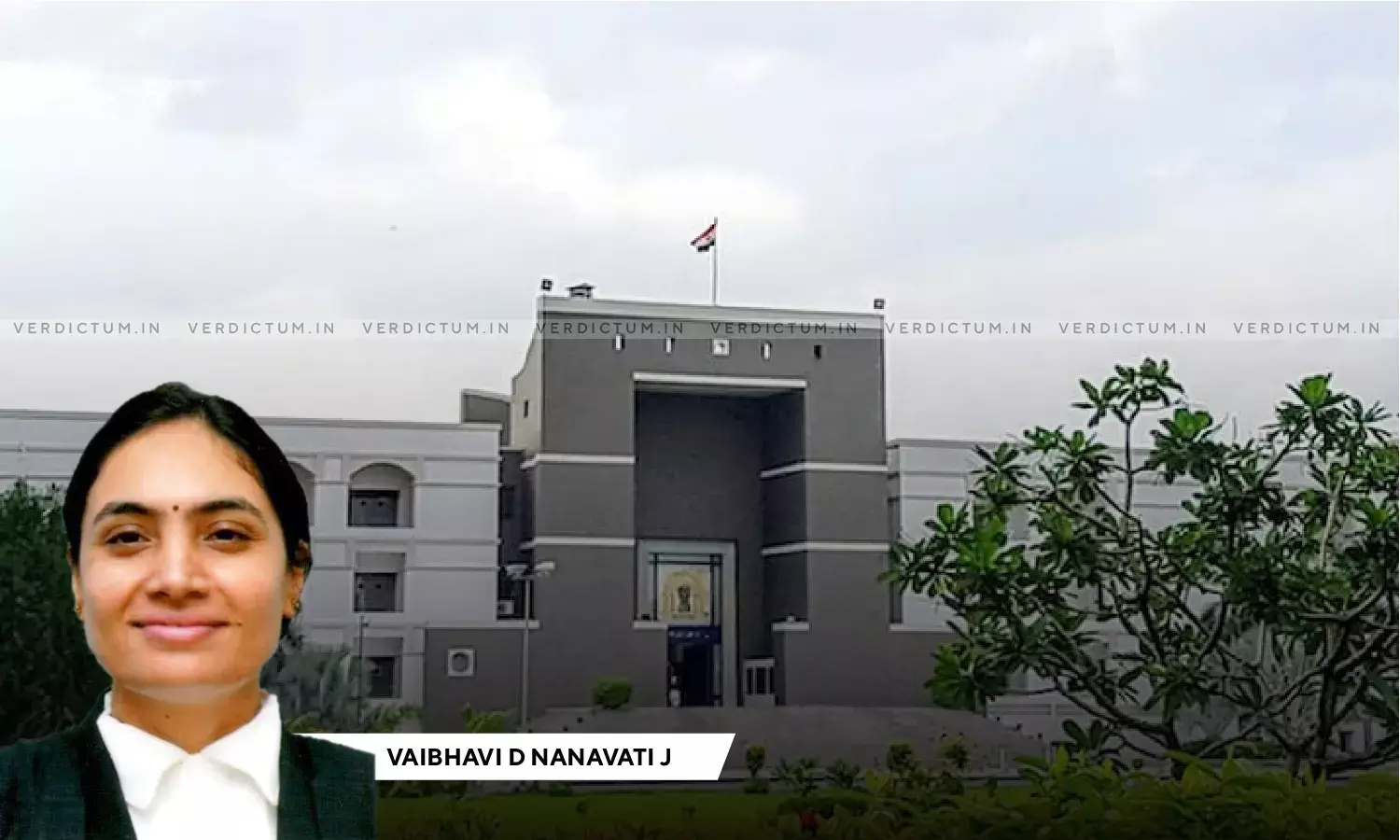2008 Ahmedabad Serial Blast Case: Gujarat HC Allows Prosecution Against 24 Prisoners For Digging Up Tunnel Inside Sabarmati Jail

The Gujarat High Court at Ahmedabad on November 23, 2022, has allowed prosecution against the prisoners who dug a tunnel nearly 200 feet long inside the Sabarmati jail to escape from the same in the year 2013. All these prisoners are accused of the 2008 serial blast case in Ahmedabad.
A Single Bench of Justice Vaibhavi D. Nanavati while allowing the writ-application filed by the State stated –
"At this stage, this Court is not required to consider whether the case of the respondents-accused fall within the definition or explanation of "State Prisoner" as the same would be subject matter of evidence. At this stage, it is only required to consider from the evidence on record whether a prima facie case is made out against the respondents-accused. In view of this Court, the concerned Court has only dealt with the definition of "State Prisoner" on demurer without assessing the evidence on record for coming to a prima facie conclusion and without giving an opportunity to the prosecution to establish whether the respondents-accused are "State Prisoners" and the concerned Court has proceeded to discharge the respondents-accused."
The Bench disregarded the adjudication of the Sessions Court through which the accused i.e., the respondents were discharged from the charges levelled against them under Section 130 of the Indian Penal Code and disagreed with the contentions made by the respondents that the continuation of the charge under Section 130 of the Indian Penal Code would result in a sessions trial.
Public Prosecutor Mitesh Amin appeared on behalf of the State i.e., the applicant.
Advocate D.D. Pathan and Advocate SM Vatsa represented the accused i.e., the respondents.
Brief Facts of the Case –
In the year 2008, there were serial bomb blasts in the city of Ahmedabad. An FIR was lodged against the respondents for the offences punishable under Sections 120(B), 121 A, 124 A, 153(1) (b) (a), 302, 307, 326, 427, 435, 468, 471 of IPC read with Sections 3, 5, 6, 7 of Explosive Substance Act, also read with Sections 10, 13, 16, 18, 19, 20, 23, 38, 39 and 40 of Unlawful Activities ( Prevention ) Act, read with Sections 3, 4 of Damage to Public Properties Act, read with Section 25 (1) (b)(a), 27 of Arms Act, read with Sections 65, 66 of Information Technologies Act. In such an incident, 56 people lost their lives and 240 were injured. The accused were lodged at the Sabarmati Central Jail, Ahmedabad and therefore, the Prisoners Act was also applicable to them.
In the year 2013, when Govindbhai – Subedar was on a duty along with the other officers of the aforesaid Jail, a tunnel dug up by the accused persons was discovered which was in connivance with each other with an intention to escape from lawful custody. The accused had no other way to come out of prison and therefore planned to run away into the nearby jungle. Also, they all are well educated and some of them are having degrees in Engineering and MBA due to which they were well conversant with many languages and techniques of engineering. An FIR was entrusted to Crime Branch, Ahmedabad by way of an order passed by the Commissioner of Police. Hence, the accused were not allowed to attend the Court proceedings and the trial was conducted through video conference. During the investigation, 24 undertrial prisoners were arrested.
The accused had approached the Sessions Court seeking to be discharged on the ground that they are not State Prisoners. The Sessions Court while going into the technicality of the definition of 'State Prisoners' discharged the respondents. Therefore, the present matter was before the High Court as a petition was filed by the State challenging such an order of the Sessions Court.
The High Court while dealing with this matter noted –
"In the facts of the present case, it appears that the accused allegedly conspired/harboured to escape from the prison by digging up a tunnel from the premises of the jail to the outside campus which is now known as 'Surangkand'."
The Court before coming to the conclusion and deciding the present case referred to and relied upon various Judgments of the Apex Court.
The Court further observed that "The respondents-accused could not have been discharged from the charges and the allegations leveled against the respondents-accused herein, at this stage, without examining the evidence as regards the "State Prisoner". The Sessions Court could not have held at this stage i.e. at the prima facie stage, when the charge is to be framed under Section 227 of the Criminal Procedure Code that the accused are not "State Prisoners" relying on the definition in Bengal Regulation-3. When the Statute does not defer the "State Prisoner" the same would be subject matter of evidence at the trial. The contention of the respondents-accused that continuation of charge under Section 130 of the Code would result in sessions trial. The said contention raised by the respondents-accused does not weight with this Court."
Accordingly, the Court quashed and set aside the order of the Sessions Court and allowed the writ application.
Cause Title – State of Gujarat v. Hafizhusain @ Adnan @ Jaid Tajjudin Gosmohiddin Mulla Tajuddin Mulla & 23 Other(S)
Click here to read/download the Judgment


